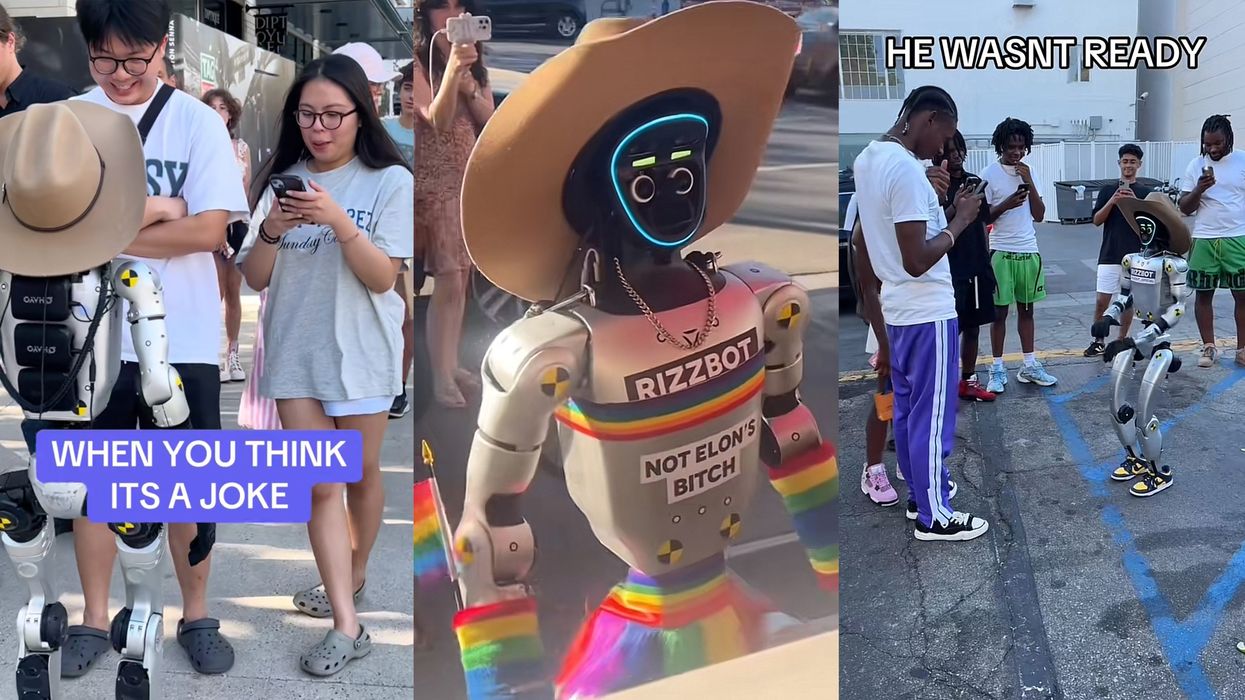Even before executive orders were signed in January or court decisions handed down, fear was already surging through transgender communities across the United States. A new study from the University of Vermont, appearing in JAMA Network Open, captures that fear in stark detail.
Titled “Access to Gender-Affirming Care and Alternatives to That Care Among Transgender Adults,” the research found that every single one of 489 transgender, nonbinary, and intersex respondents believed they could lose access to gender-affirming medical care under the shifting political climate.
Keep up with the latest in LGBTQ+ news and politics. Sign up for The Advocate's email newsletter.
“This is a population that already feels that their access to care is constantly under threat,” said Teresa Graziano, the study’s lead author, who uses they/them pronouns. “It was startling.”
Related: What does Donald Trump’s ‘shocking and devastating’ victory and a second term mean for the LGBTQ+ community?
The survey, conducted between the 2024 election and Inauguration Day 2025, revealed a level of distress that transcended fear and entered the realm of survival. More than 21 percent of participants reported that they would feel suicidal if their access to care were cut off. Graziano said one participant explicitly told them, “killing myself is easier than living without my hormones and my gender affirming care.”
Particularly alarming to Graziano was how many respondents described preparing for life without medical support. Nearly a third said they would turn to black-market hormones or attempt to synthesize hormones at home if care were banned. “My concern as a health care provider is that they do not necessarily know that they are receiving sterile products or the products that they think they’re receiving,” Graziano said. “They may not be using doses that are safe or appropriate for them because it may not translate one-to-one with what they’ve been using in the past.”
The Trump administration has moved quickly to implement policies redefining sex as strictly male or female and directing federal agencies to explore limits on gender-affirming care, particularly for minors. While no federal ban on adult care is currently in place, the U.S. Supreme Court’s June decision in Skrmetti upholding Tennessee’s ban on gender-affirming care for minors has fueled deep anxieties that similar laws could spread across the country.
Related: Trump administration announces end to gender-affirming care for transgender veterans
National advocates say the Vermont study confirms broader trends. A spokesperson for Advocates for Trans Equality told The Advocate, “This new study echoes what we found in our 2022 U.S. Trans Survey health report that we released last month, which captures the experiences of 84,170 trans adults across the country, and what millions across our country who are losing access to their health care thanks to Trump’s budget reconciliation bill are saying: Trump’s policies have consequences—all of us are less healthy and less safe, and many trans people will die without the transition-related care they need.”
For Rep. Becca Balint, Vermont’s first out lesbian member of Congress, the study’s findings reflect conversations happening at home. “It mirrors what I am hearing directly from trans, nonbinary, gender nonconforming folks, intersex people in Vermont and their families,” Balint said in an interview with The Advocate. “This level of anxiety about not being able to get the care that they need and that they deserve and that will keep them alive is something that I’m hearing from a lot of my constituents.”
Related: Supreme Court rules states can ban gender-affirming care for youth in U.S. v. Skrmetti
“In the last few months, when I am back in Vermont and I am at an event, inevitably, either someone who identifies as trans or nonbinary or their family will come up to me and they will tell me just how scared they are that they’re not going to be able to get health care,” she said. “And more broadly, just deep despondency that their own government is coming after them.”
While Balint called it “of course, a shocking statistic that over 20 percent would consider taking their own lives,” she said the finding was, tragically, not surprising. “They have been told now for two and a half years in earnest by the Republican party and by Trump that they don’t matter,” she said. “That they don’t care about the lives of these people, that they will say anything and do anything, and they will scapegoat them.”
Balint said many constituents have expressed what it feels like “to have your government weaponized against you,” and warned that political rhetoric has real consequences for mental health and safety. “When they don’t see us as elected officials standing with their civil rights, standing with their right to the health care that they need and deserve, of course, it looks bleak,” she said.
Related: LGBTQ+ mental health crisis center says calls have surged with Donald Trump’s inauguration
She sees a strong connection between today’s threats to transgender people’s access to health care and the fight for reproductive freedom. “I link those all the time, especially for constituents who might have a hard time understanding the lives of trans people because they don’t necessarily have somebody in their family or within their close social circle,” Balint said. “I always say it’s the same thing: you’re talking about people having control over their own bodies.”
Balint emphasized that cutting off access to care won’t make transgender people disappear; it simply pushes them into unsafe, underground options. She said, “transgender people have always existed and always will, as part of humanity itself.” People, she noted, will go to great lengths to obtain the care they need, even if that means risking black-market treatments.
Instead of forcing people into such dangerous paths, Balint urged, “We need to stop demonizing this population who is just trying to live their lives.”
If you or someone you know needs mental health resources and support, please call, text, or chat with the 988 Suicide & Crisis Lifeline or visit 988lifeline.org for 24/7 access to free and confidential services. Trans Lifeline, designed for transgender or gender-nonconforming people, can be reached at (877) 565-8860. The lifeline also provides resources to help with other crises, such as domestic violence situations. The Trevor Project Lifeline, for LGBTQ+ youth (ages 24 and younger), can be reached at (866) 488-7386. Users can also access chat services at TheTrevorProject.org/Help or text START to 678678.










































































